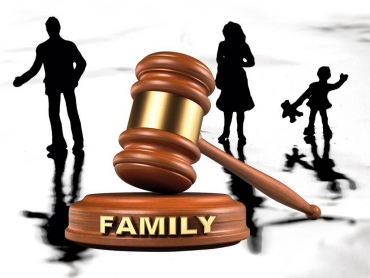The death of a parent is one of the most traumatic experiences anyone can face. When a child faces the unexpected death of a parent, the consequences can be devastating. Even when an adult has a parent who dies, the results can leave them in a deep pool of sorrow for a long time. Unfortunately, in many instances, the death of the parent may also be compounded by the legal issues that are left behind when a parent passes away. These legal issues can be quite complex and difficult for family members to face. It is important to make sure that you have the right lawyers at your side during this experience.
Effective counsel from lawyers who specialize in providing legal counsel on family matters is essential to avoid any ongoing legal problems as a result of the parent’s death. A family lawyer can provide the kind of help you need during this difficult time. The right family lawyer will help make the process of working through the experience far easier on all members of your family.
The first thing that most people will need to do after a loved one dies is to find out if they have a will. A will typically be left in a place where important documents are stored. This process may be simplified if your parent has a surviving spouse. The spouse is legally entitled to certain fiscal monies after the death of their partner. This may include any social security benefits as well as access to a pension, housing and other assets that the person left behind. Many places have an automatic system where a spouse is legally entitled to a certain percentage of assets even if a will is never found.
If the person left behind a will, the will will need to read and often examined by a court of law to verify the contents. This may take weeks or even months to settle. A family member may even contest the will if they suspect it was made out against the wishes of the parent. A sibling may decide that they were promised certain items and are now entitled to have them even if the parent does not give them that right in the will.
The parent may have left detailed instructions about their funeral. Many people specify that they want to be buried or cremated. Such instructions will need to be followed carefully. A child may suspect that a parent’s wishes are not being followed in this matter. For example, the parent may want to be buried in a specific place but the surviving spouse prefers another cemetery. This can cause friction between family members. The child may need to find out exactly what their parent wrote about their desired burial arrangements. A surviving child may also need to find out who has power of attorney over the issue and can make decisions on behalf of the deceased parent.
These kinds of legal issues are quite common when a parent passes away. Many people will need to find the help of a competent lawyer to sort them out.

